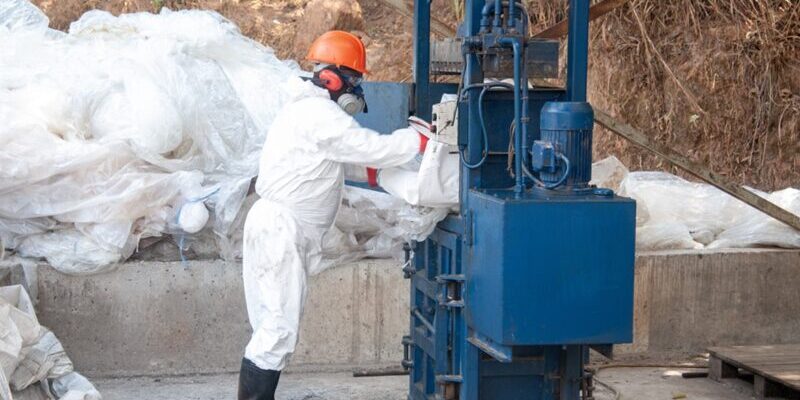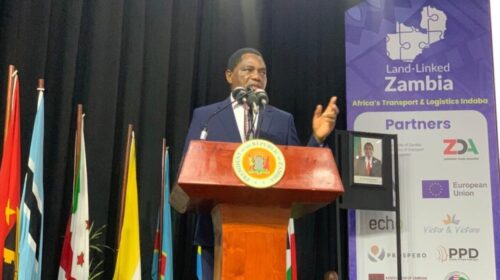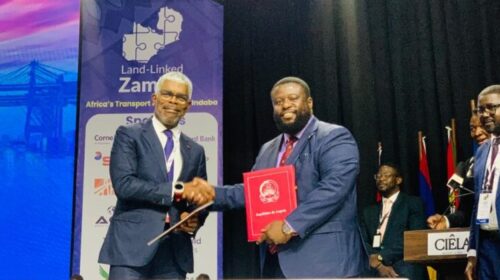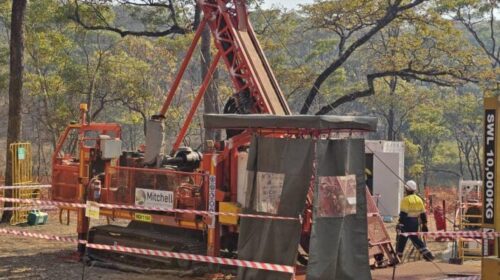FQM’S KANSANSHI MINE SETS NEW ENVIRONMENTAL MILESTONES WITH GREEN INITIATIVES
Plastic waste pollution has emerged as a pressing global issue, one that affects our environment, wildlife, and human health.
The production and consumption of plastics have skyrocketed over the past few decades. And while plastic has undoubtedly revolutionised industries and made everyday life more convenient, its disposable nature has led to a crisis.
However, transitioning to more sustainable practices, such as recycling and adopting alternative materials, can lead to cost savings and new economic opportunities, not just for the country but also for companies that consume plastics on a daily basis.
FQM’s Kansanshi Mining PLC has joined the call to action in enhancing efforts to reduce
plastic pollution and seek sustainable alternatives.
Arnold Malambo, Environmental Manager at the mine, highlights the company’s substantial progress in reducing plastic waste generation and advancing eco-friendly initiatives.
“Since the year 2014, we have gone on a serious campaign to reduce plastic waste generation, and to that effect, our drive has been more about recycling and avoidance.
Just to take you back to 2014, we, as a site, were consuming just over 4.9 million bottles of water, costing around US$60,000 per month.
To us as a department, we saw that as an opportunity, not only to contribute to waste reduction in terms of cost but also the amount of plastic waste that would otherwise go into the environment,” he explained.
He said that all employees received reusable aluminium bottles, which have become a standard item, and that visitors are also offered these bottles as an alternative to single-use plastics.
“So even for visitors, we try by all means to give them aluminium bottles, which they can reuse, instead of plastic. So, with this campaign, we’ve seen that over the years, we’ve been able to reduce bottled water consumption by 99.8 percent, as of last year (2022).
Our goal is to ensure total elimination of bottled water,” he continued.
Furthermore, the company addressed plastic waste generated from canteens by substituting non-biodegradable food packaging and cutlery with sustainable alternatives,such as biocane food packaging and corn starch cutlery have been introduced.
This has resulted in significantly reducing the non-biodegradable waste sent to the landfill.
In terms of industrial waste packaging materials, Kansanshi has undertaken an ambitious recycling programme.
Various industrial plastics containing chemicals and bags used for fertilisers and other materials are shredded, packaged, and sent to recyclers.
These materials are then transformed into reusable products, such as plastic chairs and PVC ceiling boards, by recyclers on the Copperbelt and Lusaka.
Mr Malambo emphasised the importance of educating employees and the public about the devastating effects of plastic waste on the environment.
He underlined that despite a mere 15 minutes of use, most plastic packaging materials persist in the environment for a minimum of 480 years, causing extensive harm.
“So, we have tried to make our employees conscious about the dangers of plastic.
The disadvantage it has on the environment is that you can see how littered the entire country is, and if you look at the amount of litter in the country, the biggest component is plastic. We do not have enough recycling facilities, and it’s not every type of plastic that is recyclable.
“It is an ongoing programme because it’s not easy to change everyone’s mindset, but you can actually see that for the majority of the workforce, once they are on site, littering is something that they avoid.
The use of plastic is something we have continued to encourage that they avoid as much as possible,” he said.
The company has been proactive in raising awareness about the environmental consequences of plastic pollution, prompting a shift in employee behaviour and fostering a greener mindset.
FQM remains committed to its ongoing environmental initiatives, aiming to further reduce its carbon footprint and waste generation.
The company calls upon other stakeholders, including municipalities and the government, to join hands in addressing this pressing issue.
A collective effort is essential to create lasting solutions and protect the environment for future generations.
Additionally, the mining company is collaborating with local authorities to support community cleanliness and environmental preservation in Solwezi.
![]()





